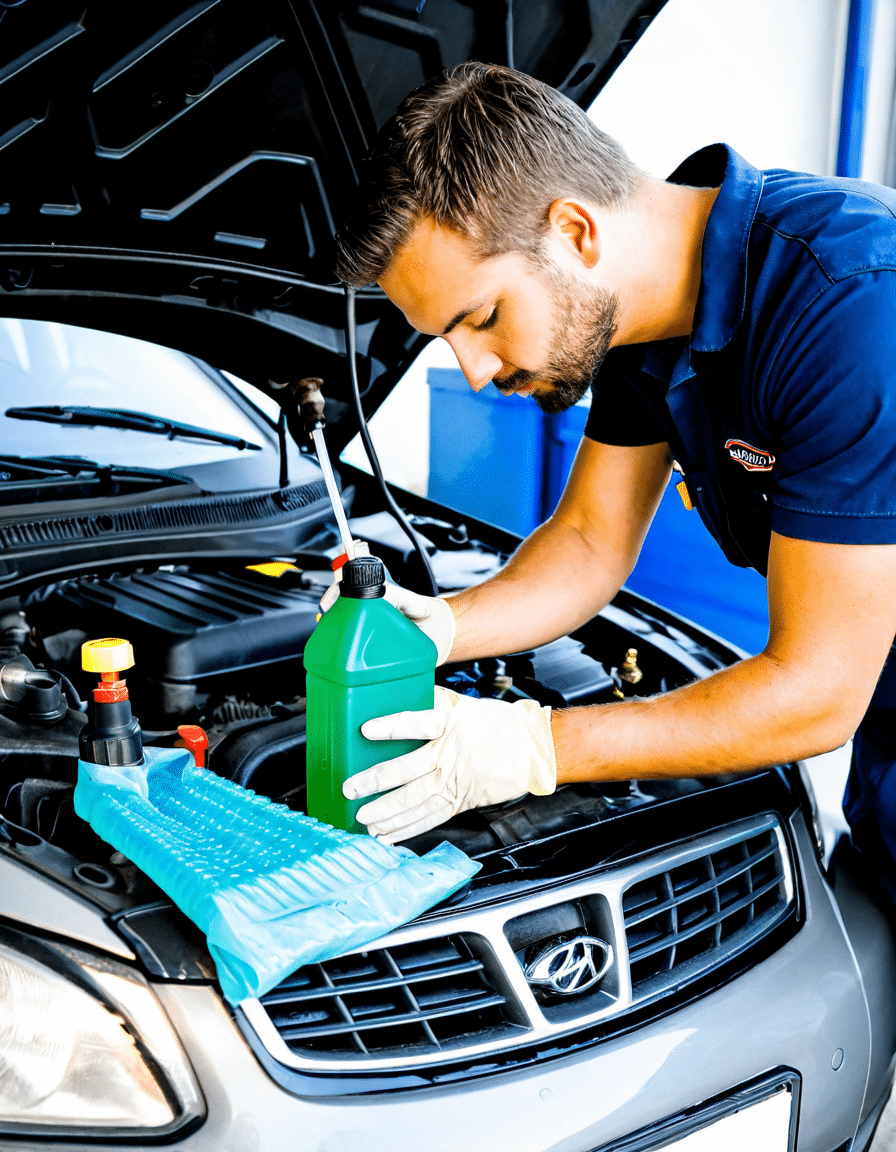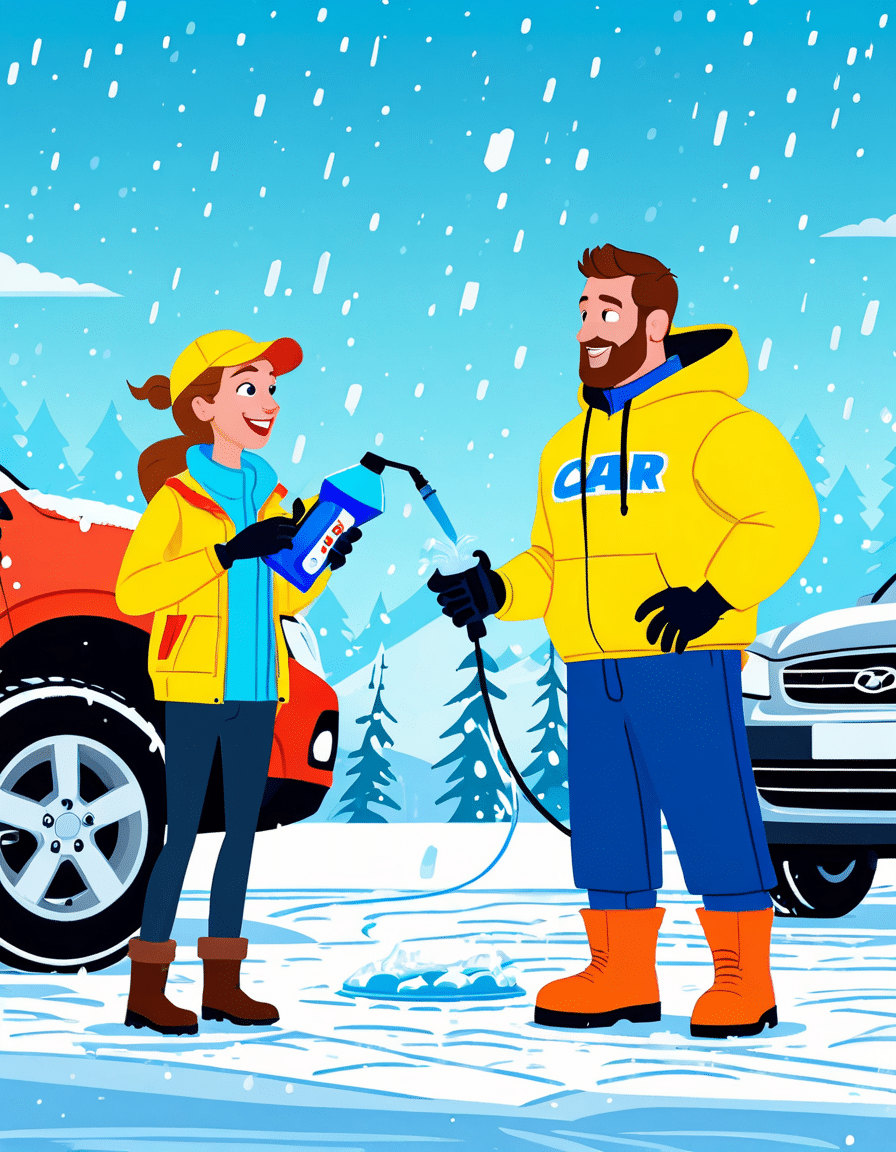When it comes to vehicle maintenance, antifreeze plays a crucial role, especially in extreme weather. You might find yourself asking, does antifreeze go bad? Well, the longevity and effectiveness of antifreeze can vary greatly based on several factors. In this article, we’ll dive deep into how antifreeze functions, signs that it may be past its prime, and the ripple effects it can have on your car’s performance. Whether you’re a novice or a seasoned vehicle owner, understanding this vital fluid can protect your vehicle from substantial damage.
Top 5 Signs That Antifreeze Has Gone Bad

1. Change in Color or Appearance
The first indicator is the color of your antifreeze. Fresh antifreeze usually boasts a bright and clear appearance, often in shades of green, orange, or pink. If you notice it’s turned murky, dark, or even rusty, that’s a blatant red flag. This could point to contamination due to rust or debris. So, if your antifreeze looks anything but vibrant, it might be time to drain it and replace it.
2. Unusual Odor
Another sign to look out for is an odd smell. Fresh antifreeze generally has a mildly sweet scent. However, if you catch a whiff of something sour or burnt, it’s a bad omen. This typically indicates that the fluid is breaking down or that your engine may be overheating, possibly leading to serious damage down the line.
3. Presence of Sediment or Particles
Sometimes, it pays to pour your antifreeze into a clear container. If you spot sediment or particles lingering at the bottom, this is usually symptomatic of corrosion within the cooling system. Flush it out! Those residues can wreak havoc on your vehicle’s internals if neglected.
4. Boiling or Freezing Point Decline
Antifreeze isn’t just some random liquid; it has specific boiling and freezing points. Over time, the additives can wear off, making the fluid less effective. To check the integrity of your antifreeze, you can use a hydrometer or refractometer. Getting these readings ensures that your antifreeze meets the manufacturer’s requirements.
5. Increased Engine Temperature
Lastly, keep an eye on that temperature gauge. If your vehicle starts frequently overheating or runs at unusually high temperatures, it might just be a sign that your antifreeze isn’t pulling its weight. A properly functioning coolant system should manage your engine’s temperature like a pro, so if that’s failing, it’s best to replace the antifreeze sooner rather than later.
How Antifreeze Affects Your Vehicle’s Performance
Better yet, understanding how antifreeze functions is essential for maintaining your vehicle’s longevity. Reliable brands like Prestone and Zerex formulate antifreeze to prevent corrosion, minimize scale buildup, and enhance heat transfer efficiency. Consistent antifreeze checks are not just for quick fixes; they’re a vital part of keeping your engine healthy.
The Breakdown of Antifreeze: Can It Go Bad?
Absolutely, antifreeze can break down over time. Factors like temperature swings, exposure to dirt, and even age contribute to a decline in performance. Organic acid technology (OAT) antifreezes often promise a longer shelf life compared to traditional options, yet they too aren’t immortal.
Most manufacturers recommend swapping out your antifreeze every 2 to 5 years or after 50,000 to 150,000 miles, depending on which type you use. Staying proactive can help identify signs of degradation before they escalate into costly repairs.
Related Concerns: Does Amoxicillin Go Bad? Can It Cause Issues?
Interestingly enough, there’s a parallel between vehicle care and pet health. Just as antifreeze can go bad, so can medications like amoxicillin, a common treatment for bacterial infections in pets.
Yep, just like antifreeze, amoxicillin has an expiration date. Once that date passes, it might not perform as expected, which can lead to ineffective treatments for your furry friends. This highlights the importance of using fresh medications, ensuring your pets receive the best care possible.
While this doesn’t directly link to antifreeze, misuse of antibiotics can lead to complications, including urinary tract infections in pets. This importance of knowing your medication is akin to keeping a close watch on your antifreeze. Both require attention to avoid long-term issues.

The Value of Regular Maintenance
Discussing whether antifreeze goes bad brings us to a vital point: regular maintenance is key. Timely checks can extend the life of your vehicle, much like routine veterinary visits can enhance your pet’s quality of life. Both require vigilance for early signs of trouble.
If you ignore the state of your antifreeze, you could be looking at severe engine damage—similar to how neglecting expired medications can jeopardize your pet’s health. Understanding the importance of antifreeze maintenance, along with keeping tabs on your medications, keeps both you and your pet in optimum shape.
Conclusion
In short, knowing whether does antifreeze go bad isn’t just a trivial concern—it’s essential for vehicle health. From monitoring its color to keeping an eye on engine temperature, vigilance is key. And just like with medications for our pets, staying informed can make all the difference. By understanding antifreeze and related implications, you’ll help ensure that both your vehicle and your furry companions are safe, healthy, and performing at their best.
Does Antifreeze Go Bad?
Antifreeze plays a vital role in keeping your vehicle running smoothly, but a common question arises: does antifreeze go bad? The answer is a definite “yes.” Over time, antifreeze can lose its effectiveness due to degradation, contamination, and exposure to air, which compromises its ability to prevent freezing and overheating. Just as a well-maintained home, like those found in the popular flats To rent leicester listings, can withstand weather, your vehicle’s coolant system needs regular checks to perform optimally.
Signs of Deterioration
Recognizing the signs that your antifreeze is going bad can save you from expensive repairs. If you notice an unusual appearance, like cloudiness or debris in your coolant, it might be time for a change. Similarly, the effectiveness of your antifreeze can be compromised if it’s been sitting around too long, much like outdated reviews can mislead you—just take a peek at Tri point lending Reviews to see how crucial up-to-date info is. In vehicles, if the boiling point and freezing point of your antifreeze don’t meet specifications, that could lead to engine trouble or, heaven forbid, a breakdown in harsh weather.
Trivia Time!
Did you know that antifreeze can last anywhere from two to five years, depending on the type? That’s longer than many pets, like the adorable Yorkie terrier Chihuahua mix, could hang around without needing a bath or a trim! And speaking of pets, if you’re ever faced with a sick cat, knowing about conditions like an irritated stomach caused by Clavomax can help you act quickly—after all, just like in car maintenance, knowledge is power!
So, the next time you’re checking on your vehicle’s fluids, think of it as a reminder—just as you wouldn’t want to skimp on pet care products like the Advantage II For Dogs by weight, you don’t want subpar antifreeze in your cooling system. Remember, keeping an eye on your antifreeze isn’t just good practice; it keeps your ride smooth and reliable!



